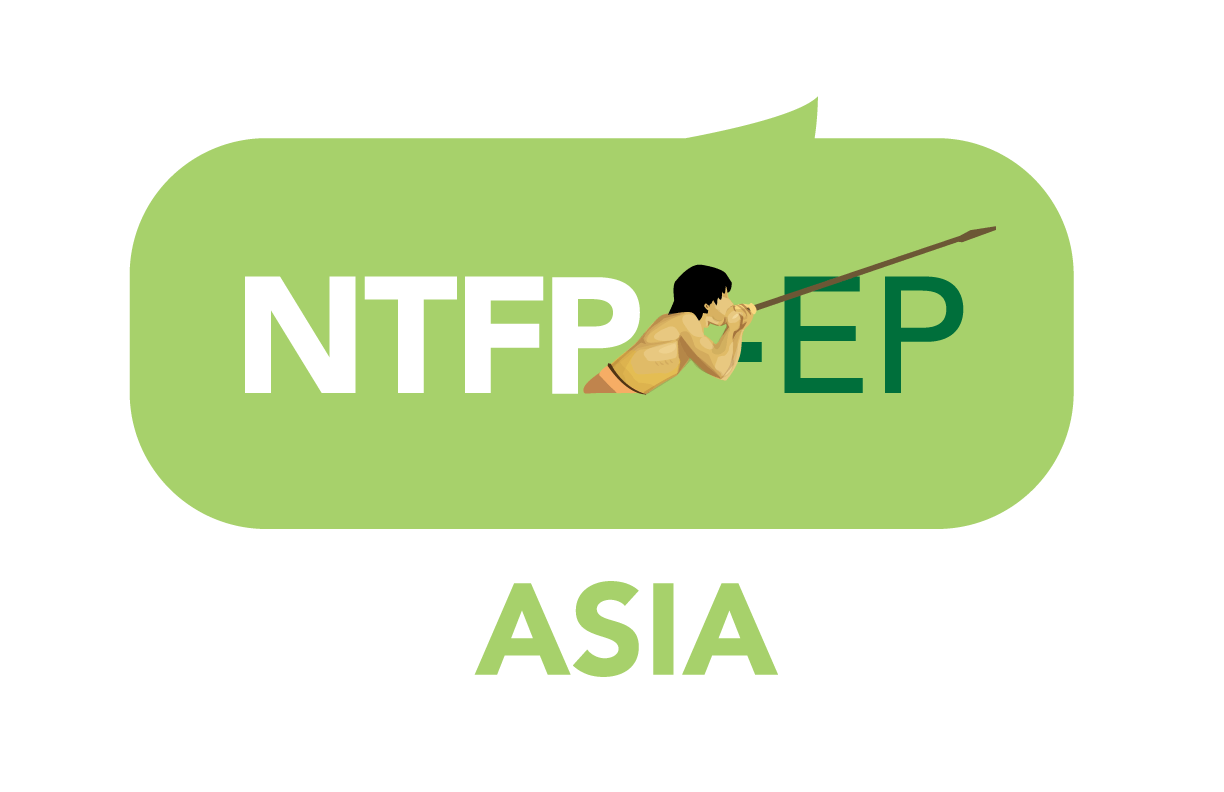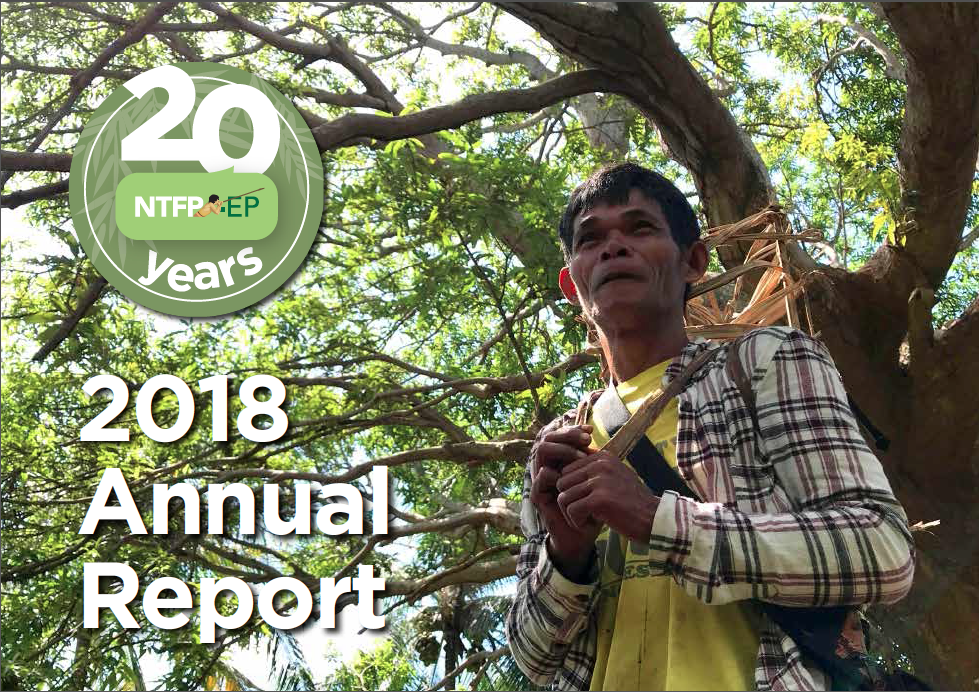NTFP-EP Asia is a collaborative network of non-governmental organizations and community-based organizations working with forest-based communities to strengthen their capacity in the sustainable management of natural resources in the Philippines, India, Indonesia, Malaysia, Vietnam, and Cambodia (https://ntfp.org/what-we-do/).
POSITION:Project Officer
PROJECT:Assessing, engaging, and recognizing Community Based Forest Management towards Nationally Determined Contributions in the Philippines (ASSERT CBFM)
SALARY:PHP30,000 to 34,000 (gross) based on experience with corresponding government-mandated benefits.
BACKGROUND
ASSERT CBFM is a two-year project developed by NTFP-EP in collaboration with the Forest Management Bureau – Department of Environment and Natural Resources and members of the National Working Group on CBFM, and will be implemented from November 2019 until December 2021. The overall objective of the project is to assess, engage and recognize Community Based Forest Management (CBFM) towards Nationally Determined Contributions (NDCs) in the Philippines. Main project areas include Lower and Upper Sierra Madre and Palawan landscapes, including several activities to be conducted at the national level.
SCOPE OF WORK
NTFP-EP is looking for one (1) Project Officer, who will be based in Quezon City, Philippines to oversee and coordinate the quality and timely implementation of the project and activities funded by Forest Foundation Philippines. The work plan agreed upon between NTFP-EP and the Forest Foundation determines the nature of the project and the activities to be implemented.
Specifically, the Project Officer is responsible to:
- Ensure timely and effective oversight of the project and implementation of all activities listed in the agreed work plan in accordance with the grant agreement signed by NTFP-EP and Forest Foundation Philippines and the policies of NTFP-EP as a whole;
- Develop TORs and recruiting project consultants as needed to conduct work on specific activities and objectives set forth in the work plan, and monitor consultants deliverables accordingly;
- Coordinate with NTFP-EP staff, consultants contracted under the project and partners to work on the activities and objectives listed in the work plan, and ensuring that their work is conducted in a timely manner and hold high quality;
- Review all deliverables and reports to be submitted NTFP-EP prior and prior to Forest Foundation;
- Ensure accurate and timely submission of quarterly and annual activity progress reports, and financial reports in coordination with the project finance and administrative officers based on the agreed reportorial requirements signed under the grant agreement;
- Collect data and conduct monitoring and evaluation activities based on the monitoring and evaluation framework developed with participation of project partners and stakeholders where relevant;
- Monitor project funds, prepare project disbursements according to the workplan and liaise with partners and Forest Foundation Philippines on budgetary changes if required;
- Adhere to established project operating arrangements for financial management and accountability, including ensuring all supporting documents are maintained and an orderly filing system is in place in coordination with NTFP-EP administrative and finance staff and of partners. Together with the project team members, participate in relevant advocacy and policy dialogues with partners and key stakeholders;
- Coordinate with partners and stakeholders;
- Any other tasks deemed necessary to achieve the project objectives in accordance to the grant agreement signed by NTFP-EP and Forest Foundation Philippines.
PROJECT DURATION AND WORK ARRANGEMENTS
The Project Officer shall directly coordinate with the Executive Director of NTFP-EP and will be contracted full-time at the earliest from December 2019 to December 2021 (two years) with annual renewal of the contract based on performance evaluation.
QUALIFICATIONS
A. Competencies
- Proven ability to coordinate and manage complex project work, exercise sound judgment, strategic thinking, with
- Proven ability in report writing, synthesis, monitoring and evaluation of projects and activities;
- Proven ability to produce high quality outputs in a timely manner in accordance with the requirements of the donor agency/organization;
- Proven ability of working with various stakeholders such as communities, civil society organizations, local government units, national government agencies, and the academe;
- Culturally and gender sensitive
B. Required Experience, Skills, and Education
- University degree in Forestry, Environmental or Social Sciences, Development Communication, Community Development or related fields/discipline;
- With relevant, proven experience and work (minimum of 3 to 5 years) on forestry, community/social forestry, natural resources management, climate change adaptation, sustainable livelihoods, and community development;
- Proven experience in project management, reporting, monitoring and evaluation;
- Experience in coordinating and implementation of climate change, development related projects;
- Experience working with various stakeholders such as communities, civil society organizations, local government units, national government agencies, and the academe;
- Experience with partnership/network building, advocacy and policy dialogue at the local and national level;
- With strong ability to communicate (written and oral) in English;
- Proven ability to collaborate well and to deliver work in a timely manner.
HOW TO APPLY
Qualified candidates may send the following to applications@ntfp.org by 6:00 PM on Monday, December 2, 2019.
(1) Application letter/cover letter addressed to Eufemia Felisa Pinto, Executive Director
(2) Curriculum Vitae, with minimum of three (3) character references
(3) Other relevant attachments (e.g. certification, project experiences)
(4) Fill-up our application form at: https://forms.gle/sdA23vWDNpH82pWMA
Indicate “Project Officer – ASSERT CBFM” in the subject line of the email.Only shortlisted applicants will receive confirmation/communication from NTFP-EP. Any applications received after the deadline will not be considered.
NTFP-EP values people from diverse backgrounds and works to create an open atmosphere of trust, honesty and respect. Harassment or discrimination of any kind is unacceptable, including cases involving race, color, religion, gender, age, national origin, citizenship, disabilities, sexual orientation, veteran status, or any other similarly protected status.
This principle applies to all aspects of employment, from recruitment to terminationand other terms and conditions of employment. This policy complies with applicable state and local laws governing non-discrimination in employment.


